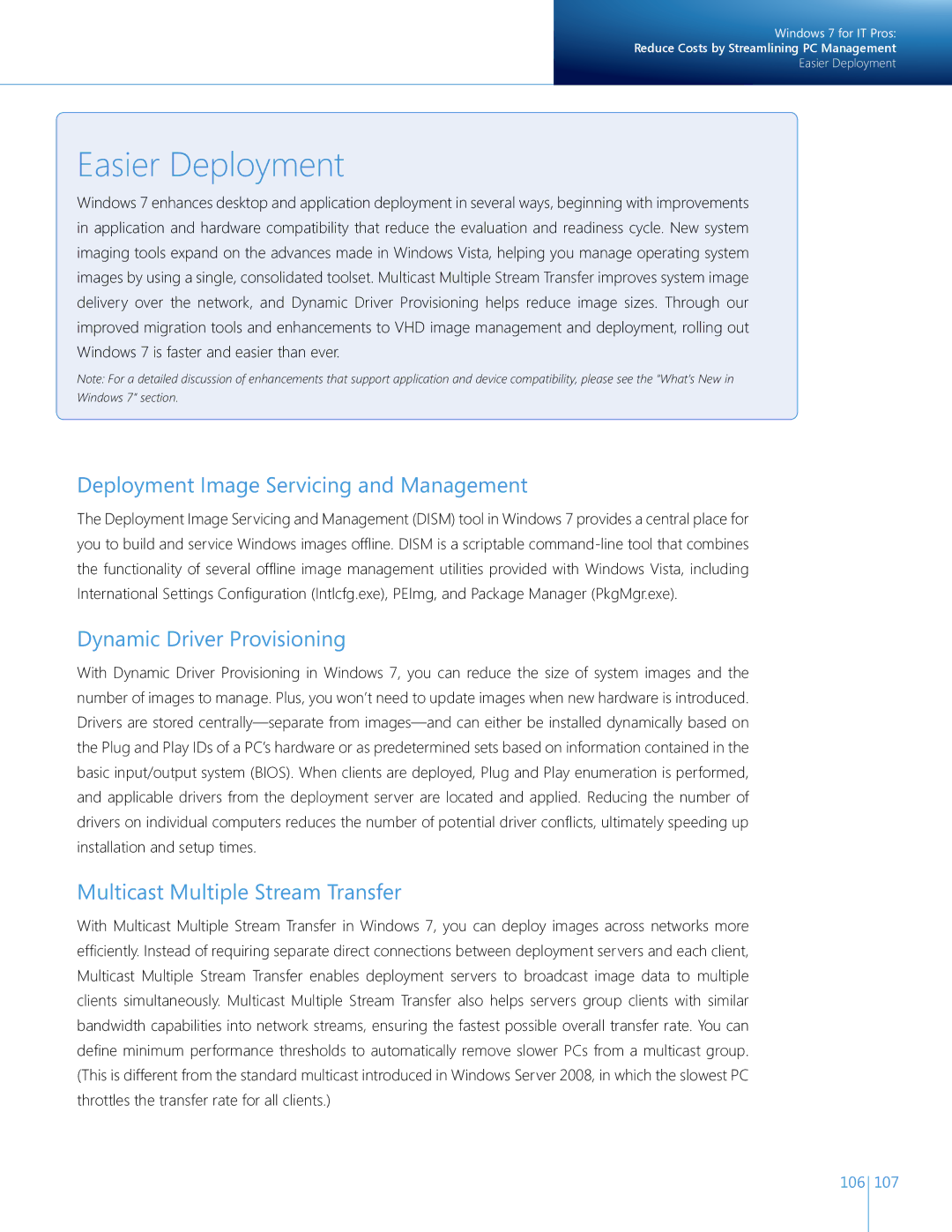
Windows 7 for IT Pros:
Reduce Costs by Streamlining PC Management
Easier Deployment
Easier Deployment
Windows 7 enhances desktop and application deployment in several ways, beginning with improvements in application and hardware compatibility that reduce the evaluation and readiness cycle. New system imaging tools expand on the advances made in Windows Vista, helping you manage operating system images by using a single, consolidated toolset. Multicast Multiple Stream Transfer improves system image delivery over the network, and Dynamic Driver Provisioning helps reduce image sizes. Through our improved migration tools and enhancements to VHD image management and deployment, rolling out Windows 7 is faster and easier than ever.
Note: For a detailed discussion of enhancements that support application and device compatibility, please see the “What’s New in Windows 7” section.
Deployment Image Servicing and Management
The Deployment Image Servicing and Management (DISM) tool in Windows 7 provides a central place for you to build and service Windows images offline. DISM is a scriptable
Dynamic Driver Provisioning
With Dynamic Driver Provisioning in Windows 7, you can reduce the size of system images and the number of images to manage. Plus, you won’t need to update images when new hardware is introduced. Drivers are stored
Multicast Multiple Stream Transfer
With Multicast Multiple Stream Transfer in Windows 7, you can deploy images across networks more efficiently. Instead of requiring separate direct connections between deployment servers and each client, Multicast Multiple Stream Transfer enables deployment servers to broadcast image data to multiple clients simultaneously. Multicast Multiple Stream Transfer also helps servers group clients with similar bandwidth capabilities into network streams, ensuring the fastest possible overall transfer rate. You can define minimum performance thresholds to automatically remove slower PCs from a multicast group. (This is different from the standard multicast introduced in Windows Server 2008, in which the slowest PC throttles the transfer rate for all clients.)
106 107
